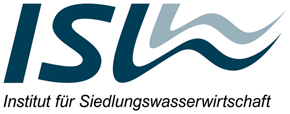

Project Funding: BMBF
Funding Reference: 03XP0041F
Project Duration: 05/2016 - 12/2019
Project Management:
Prof. Dr.-Ing. Thomas Dockhorn
Scientific Project Work:
M.Sc. Sören Hornig
![BMBF_CMYK_Gef_M [Konvertiert] BMBF Logo](/fileadmin/Redaktionsgruppen/Institute_Fakultaet_3/ISWW/Forschung/BMBF_sponsored_en_2023.jpg)
Project Management: Prof. Dr.-Ing. Thomas Dockhorn
Scientific Project Work: M.Sc Sören Hornig
EnviroChemie (Project coordinator)
Papiertechnische Stiftung (PTS)
Prof. Dr. rer. nat. Uwe Schröder, TU Braunschweig, Institut für Ökologische und Nachhaltige Chemie
PD Dr. Falk Harnisch, UFZ Helmholtz-Zentrum für Umweltforschung, Leipzig

Resource efficient wastewater treatment is an essential pillar for sustainable water management. Bioelectrochemical systems (BES), which can either be operated as microbial fuel cells (MFC) or microbial electrolysis cells (MEC), are especially suitable for sustainable wastewater treatment, since they generate electric energy or act as a chemical energy source and at the same time save energy required for the treatment process.
The Funding Measure MachWas of the Federal Ministry of Education and Research in Germany, the BMBF, intends to promote the further development of modern and sustainable water technologies using innovative materials.
The objective of this research project is the development, investigation and optimization of novel paper-based three-dimensional electrodes as well as hydrocarbon-based cation exchange membranes. On the basis of these newly developed materials the application of bioelectrochemical systems for wastewater treatment and simultaneous generation of electrical energy or use as a chemical energy source will be investigated and evaluated. In addition, options for the removal of phosphorus and nitrogen with the objective of a substance recovery will be investigated during operation of the BES. The project also intends to prove the practical suitability of BES for wastewater treatment in combination with an efficient product recovery.
The Institute of Sanitary and Environmental Engineering will systematically investigate the electrodes and membranes, developed and optimized in the preceding research steps, in regard to their efficiency for wastewater treatment in pilot scale tests. Beyond that, it will also be necessary to determine relevant parameters for an adapted operation of the BES prototype, since only an effective fine tuning of material characteristics and operational settings can lead to an optimized overall system. Pilot scale wastewater treatment tests with the BES prototype will be conducted as close as possible to real-life settings with municipal wastewater and wastewater from a paper mill.
Based on the test results from the operation of the prototype, project partners will develop and operate a demonstrator in cubic meter scale. This demonstrator will be used to prove functionality of a BES for municipal and industrial (paper mill) wastewater treatment and to determine capacity as well as performance limits of the system. The objective of the operation of the demonstrator is to identify new and practical options for sustainable, cost-efficient and resource-conserving wastewater treatment.
Vacancies of TU Braunschweig
Career Service' Job Exchange
Merchandising
Term Dates
Courses
Degree Programmes
Information for Freshman
TUCard
Technische Universität Braunschweig
Universitätsplatz 2
38106 Braunschweig
P. O. Box: 38092 Braunschweig
GERMANY
Phone: +49 (0) 531 391-0
